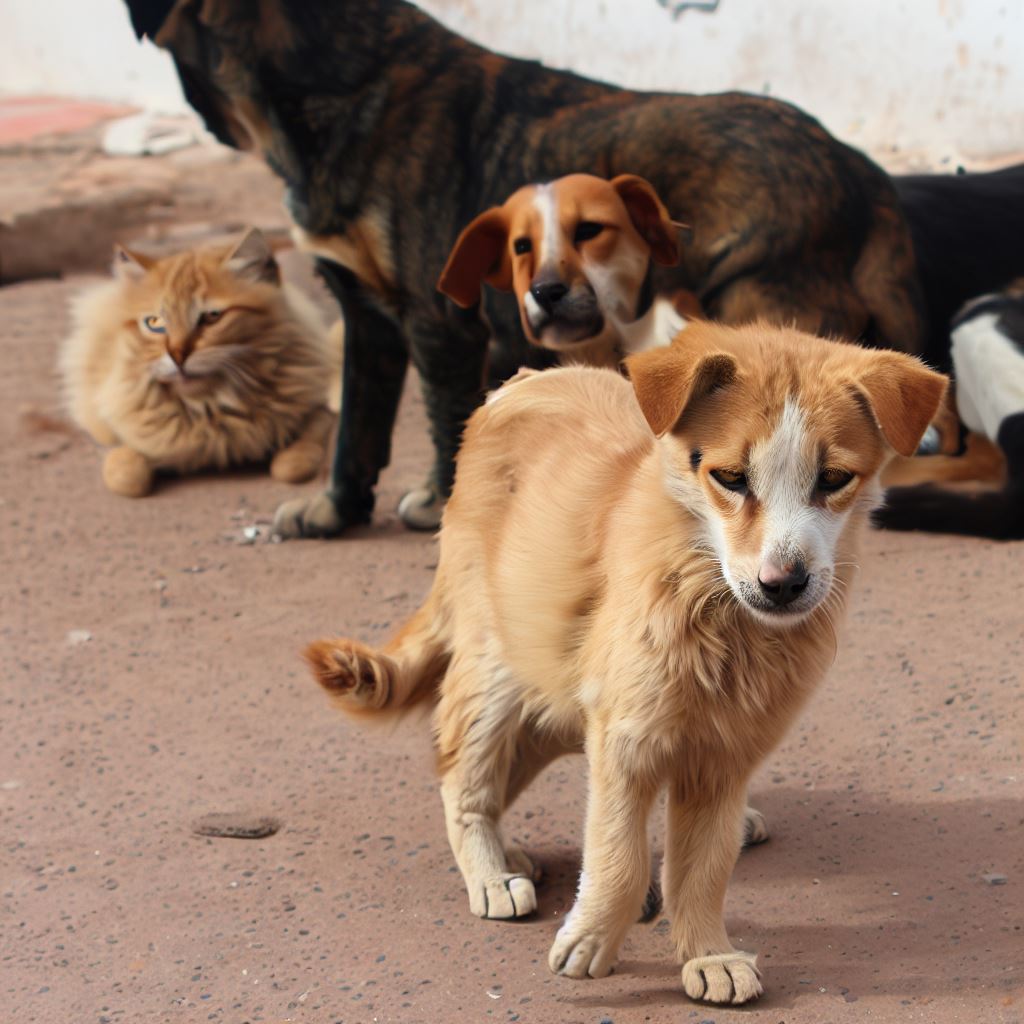
The Enigma of Street Cats and Dogs in Morocco: A Cultural Insight
When wandering the vibrant streets of Morocco, it's impossible not to notice the plethora of cats and dogs that call the alleyways, marketplaces, and even some hotels their home. But why are there so many? And how do locals perceive and interact with these animals? This article delves deep into the world of Morocco's street animals street animals, shedding light on cultural practices, local sentiments, and the broader implications for tourists and residents alike.
From the bustling streets of Marrakech to the serene alleys of Chefchaouen, the presence of these animals tells a story deeply intertwined with Morocco's history, culture, and socio-economic dynamics. Let's embark on this journey to understand the lives of Morocco's street cats and dogs.
Table of Contents
- Why So Many Street Animals?
- How They're Treated by Locals
- Do Moroccan People Have Pets?
- Strays in Hotels: A Common Sight?
- Addressing Popular Questions
Why So Many Street Animals?
The phenomenon of street animals in Morocco isn't unique to the country. However, the sheer number of cats and dogs roaming freely is indeed noteworthy. Several factors contribute to this:
Firstly, the climate and environment of Morocco provide a conducive habitat for these animals. The country's diverse landscapes, from coastal areas to mountainous regions, offer various niches for cats and dogs to thrive.
Secondly, the socio-economic conditions play a role. In some areas, especially rural ones, neutering and spaying animals isn't a common practice, leading to rapid population growth. Moreover, with limited resources dedicated to animal shelters or rescue operations, many animals find themselves on the streets.
Lastly, cultural practices and beliefs also influence the number of street animals. In many parts of Morocco, cats are revered and considered good luck. This positive sentiment often leads locals to feed and care for street cats, further encouraging their proliferation.
Historical Context
Historically, cats and dogs have always been a part of Moroccan streets. Cats, in particular, were valued for their ability to control pests in markets and granaries. Dogs, on the other hand, were often used as guard animals, protecting homes and livestock.
How They're Treated by Locals
The relationship between Moroccans and street animals is complex and multifaceted. While many locals have a soft spot for these creatures, feeding them and even providing makeshift shelters, others view them as pests or nuisances.
It's not uncommon to see market vendors sharing their lunch with a feline companion or children playing with a litter of kittens in a city square. These interactions highlight the affection and care that many Moroccans have for street animals.
However, not all interactions are positive. In some areas, especially in larger cities, there have been reports of mistreatment or neglect. This disparity in treatment can be attributed to various factors, including cultural beliefs, personal experiences, and economic conditions.
Organisations and individuals across the country are working tirelessly to improve the conditions for street animals, advocating for their rights and educating the public about their welfare.
Local Legends and Beliefs
Several local legends and beliefs further shape the relationship between Moroccans and street animals. For instance, there's a popular belief that feeding a stray cat can bring good luck and ward off evil spirits. Such beliefs, rooted in ancient traditions, influence the way locals interact with these animals.
Do Moroccan People Have Pets?
Yes, many Moroccan families have pets, especially cats. Cats are often seen as members of the household, cherished for their companionship and their ability to keep homes free from pests. However, the concept of pet ownership in Morocco might differ from Western norms.
While many families care for animals, not all of them live inside homes. It's common for pets to live outdoors, roaming freely during the day and returning home in the evenings. This semi-independent lifestyle is a result of both cultural practices and practical considerations, given the climate and living conditions in many parts of the country.
As for the question of why some pets end up on the streets, the reasons are varied. Economic hardships, changes in family circumstances, or simply the animal's independent nature can lead to pets becoming street animals. However, it's essential to note that not all street animals were once pets. Many were born on the streets and have never known a home.
Efforts are being made to encourage responsible pet ownership, including the importance of neutering and spaying, to control the population of street animals.
Strays in Hotels: A Common Sight?
Travellers to Morocco often remark on the presence of cats and sometimes dogs in hotels, riads, and guesthouses. While not universal, it's indeed not uncommon to find a resident cat lounging in a hotel courtyard or greeting guests at the entrance.
Many hotel owners and staff have a soft spot for these animals, providing them with food, shelter, and even medical care. In return, these cats often act as unofficial mascots, adding to the charm and character of the establishment.
However, it's essential for travellers to exercise caution. While many of these animals are friendly and well-cared for, not all are in good health. It's always a good idea to avoid touching or feeding street animals unless you're sure of their health status.
For those looking to make a positive impact, consider supporting local animal welfare organisations or volunteering during your stay. Many organisations are working tirelessly to improve conditions for street animals and would appreciate any help they can get.
Addressing Popular Questions
When it comes to street animals in Morocco, many questions arise. Here, we address some of the most commonly asked questions to provide a clearer understanding of the situation.
Are street animals in Morocco vaccinated?
While some street animals, especially those in proximity to hotels or establishments, might be vaccinated and cared for, the majority are not. Various organisations and initiatives aim to vaccinate street animals against rabies and other diseases, but the task is monumental given the number of animals.
Is it safe to approach street animals?
While many street animals are friendly and used to human interaction, it's always best to exercise caution. Avoid making sudden movements or cornering an animal, as this can lead to unpredictable behaviour. If you wish to interact, approach slowly and let the animal come to you.
How can I help street animals during my visit?
There are several ways to make a positive impact. Consider donating to local animal welfare organisations, volunteering your time, or even adopting an animal if circumstances allow. Small acts, like providing food or water, can also make a difference. However, always ensure that the food is suitable for the animal and doesn't harm their health.
Why don't local authorities address the issue?
While it might seem that local authorities are not addressing the issue, many initiatives and programs aim to improve the conditions for street animals. However, given the scale of the problem and limited resources, progress can be slow. Collaborative efforts between authorities, NGOs, and the public are essential to bring about lasting change.
Key Takeaways
- Street animals, especially cats, are a common sight in Morocco and have been a part of the country's landscape for centuries.
- While many locals care for and feed these animals, not all interactions are positive. Efforts are being made to improve conditions and educate the public about animal welfare.
- The presence of street animals in hotels adds to the charm and character of many establishments. However, travellers should exercise caution when interacting with these animals.
- Supporting local animal welfare organisations and initiatives is a great way to make a positive impact during your visit.
Common Misconceptions
- Misconception: All street animals in Morocco are former pets. Fact: While some street animals might have once been pets, many were born on the streets and have never known a home.
- Misconception: Street animals are pests and should be avoided. Fact: Many street animals are friendly and pose no threat. However, it's always best to exercise caution and avoid feeding or touching animals unless you're sure of their health status.
- Misconception: Local authorities are not doing anything to address the issue. Fact: Many initiatives and programs are in place to improve conditions for street animals. Collaborative efforts between authorities, NGOs, and the public are essential for lasting change.
Conclusion
The presence of street cats and dogs in Morocco cats and dogs in Morocco offers a window into the country's rich cultural tapestry, reflecting centuries-old traditions, socio-economic dynamics, and the ever-evolving relationship between humans and animals. While the sight of these animals roaming freely might be jarring for some visitors, it's essential to approach the situation with empathy and understanding.
Efforts are being made across the country to improve conditions for these animals, from vaccination drives to educational programs. As travellers, we have a unique opportunity to make a positive impact, whether through donations, volunteering, or simply spreading awareness.
As you wander the streets of Morocco, take a moment to observe these animals. Behind each pair of eyes is a story, a testament to the resilience and adaptability of nature. And perhaps, in understanding their stories, we can find a deeper connection to the land and its people.
For more insights into Moroccan culture, travel tips, and recommendations, explore our Travel Hacks section or check out our comprehensive Guide to Weather in Agadir by Month. Safe travels!
Related Articles:
A Comprehensive Guide to Weather in Agadir by Month
The Ultimate Agadir Guide: Discover the Jewel of Morocco
Looking for activities to do in Agadir? Check out our best things to do in Agadir and book tickets and activities online with our best price guarantee!



